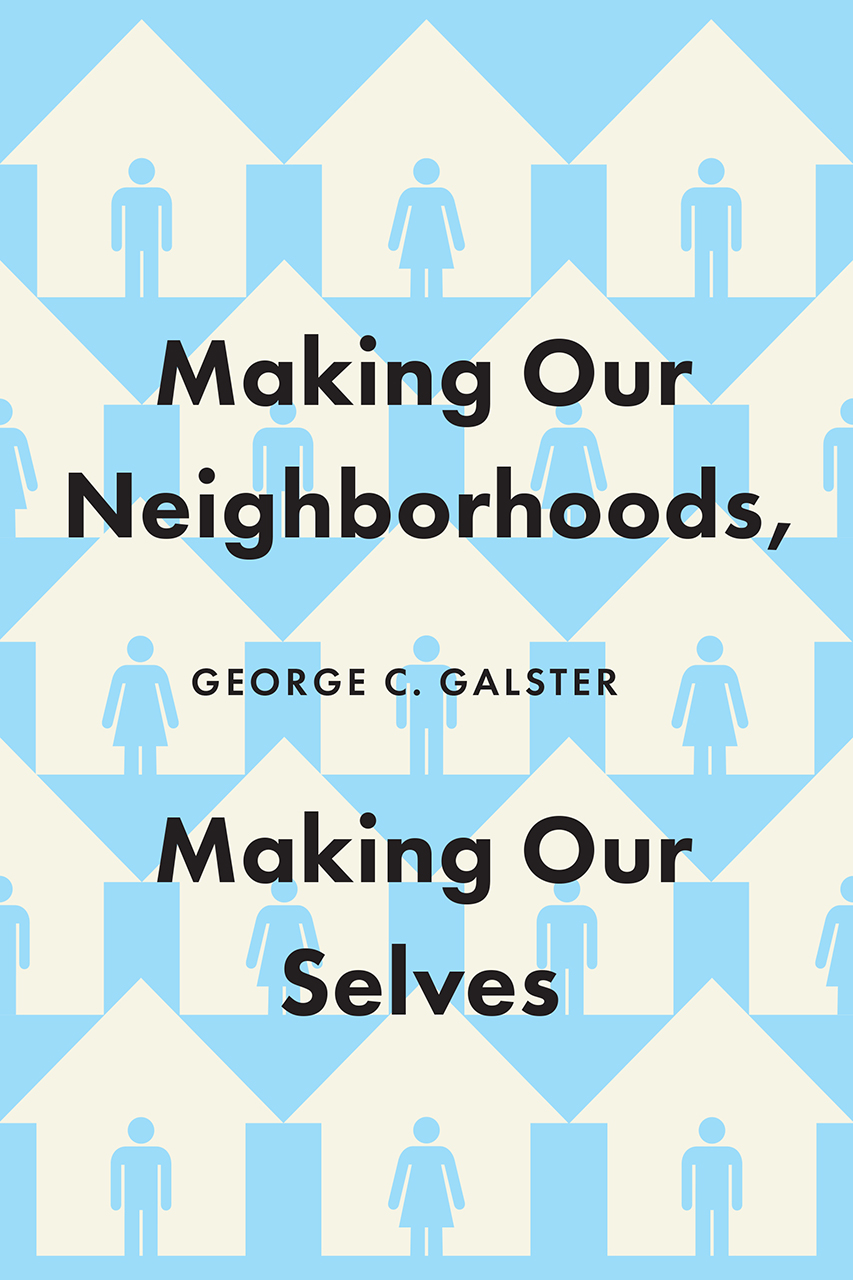
- This event has passed.
MAKING OUR NEIGHBORHOODS, MAKING OUR SELVES
November 4, 2019 @ 2:30 pm - 4:00 pm

Urban theorists have tried for decades to define exactly what a neighborhood is. But behind that daunting existential question lies a much murkier problem: never mind how you define them—how do you make neighborhoods productive and fair for their residents? In Making Our Neighborhoods, Making Our Selves, George C. Galster delves deep into the question of whether American neighborhoods are as efficient and equitable as they could be—socially, financially, and emotionally—and, if not, what we can do to change that. Galster aims to redefine the relationship between places and people, promoting specific policies that reduce inequalities in housing markets and beyond. Drawing on economics, sociology, geography, and psychology, Making Our Neighborhoods, Making Our Selves delivers a clear-sighted explanation of what neighborhoods are, how they come to be—and what they should be.
GEORGE C. GALSTER is the Clarence Hillbery Professor of Urban Affairs and distinguished professor emeritus in the Department of Urban Studies and Planning at Wayne State University.
This book presents a holistic, multi-disciplinary analysis of the origins, nature and consequences of neighborhood change and offers strategies for making a more socially desirable palette of neighborhoods in America. The foundational proposition of this book is:we make our neighborhoods and then they make us. That is, our collective actions in metropolitan housing sub markets regarding where we live and invest financially and socially will determine what characteristics our neighborhoods will manifest and how they will evolve. In turn, these multidimensional neighborhood characteristics influence our attitudes, perceptions, behaviors, health, quality of life, financial well-being, children’s development, and families’ opportunities for social advancement.The book advances the Housing Sub market Model as a way of understanding the causes and effects of neighborhood dynamics through the lens of shifts in metropolitan housing demands and supplies. Unfortunately, the private, market-oriented decision-makers now governing human and financial resource flows among neighborhoods usually arrive at inefficient and inequitable outcomes from the perspective of the larger society. Inefficient resource allocations arise due to externalities, strategic gaming, and self-fulfilling prophecies. This market failure systematically produces too-little housing investment in many places and too much segregation by race and income. Moreover, lower-income, black and Hispanic households and property owners typically bear a disproportionate share of the costs associated with under-investment, segregation and neighborhood transition processes, while reaping comparatively little of their benefits. Because neighborhood context powerfully affects children, youth and adults—yet neighborhood contexts are extremely unequal across economic and racial groups—space becomes a way of perpetuating unequal opportunities for social advancement. To remedy these substantial market failures, this book provides a comprehensive set of neighborhood-supportive public policies and programs in the domains of physical quality, economic diversity, and racial diversity, which are guided by the principle of strategic targeting.